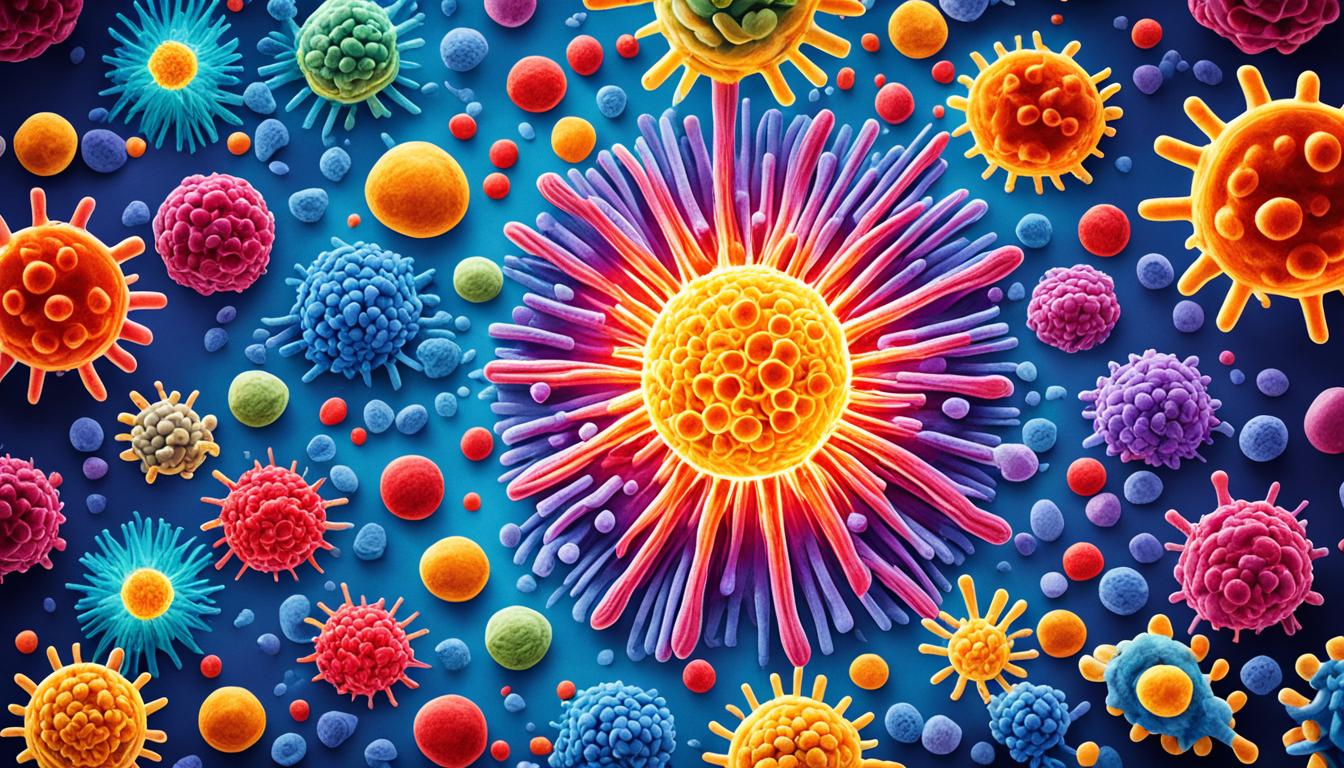Colorectal cancer affects the colon and rectum, essential parts of the gut. It’s a common cancer worldwide, having a big impact in Thailand and beyond. Recent studies show it caused a high number of new cancer cases and deaths in 2012.
It’s key to know the signs, causes, and how it’s diagnosed. This understanding helps find it early and improve how it’s treated. Stem cell therapy is a new and promising way to treat colorectal cancer.
Key Takeaways:
- Colorectal cancer involves the colon and rectum, parts of the gastrointestinal tract.
- It ranks as a highly common cancer type around the globe.
- Knowing its symptoms, causes, and detection methods is essential for spotting it early.
- Stem cell therapy offers promise as an innovative treatment.
- More studies are necessary to confirm the safety and effectiveness of stem cell therapy.
Understanding Colorectal Cancer
Colorectal cancer is a major issue that attacks the colon and rectum. These are key parts of our digestive system. It comes in many types, like colorectal carcinoma.
Genetic changes, what we’re exposed to, and lifestyle choices can lead to this cancer. These things make cells in our colon or rectum grow wrong, causing the cancer.
Knowing how colorectal cancer starts is key to fighting it. Scientists look at how stem cells and the area around a tumor work together. This helps find new ways to stop tumors from growing and spreading.
Finding colorectal cancer early is very important. Tests like colonoscopies can spot problems before they become cancer. This makes treating it easier and increases the chance of getting better.
To see how big the issue is worldwide, look at the table below:
| Country | Colorectal Cancer Cases (per year) | Colorectal Cancer Deaths (per year) |
|---|---|---|
| Country A | XX,XXX | XX,XXX |
| Country B | XX,XXX | XX,XXX |
| Country C | XX,XXX | XX,XXX |
As you can see from the table, colorectal cancer is a significant global issue. Many people in different countries face high risks and mortality rates.
Summary
Colorectal cancer is a serious disease that starts in the colon and rectum. It shows up in different forms, like colorectal carcinoma. Scientists are looking at how stem cells and the area near a tumor help cancer grow. Knowing this can help develop new treatments and ways to stop cancer.
Finding colorectal cancer early is very important. Tests like colonoscopies help catch it before it gets worse. This makes treatment easier and improves the chance of getting better. The table above shows how widespread and harmful colorectal cancer is.
Innovative Stem Cell Therapy for Colorectal Cancer Treatment
Stem cell therapy is becoming a hopeful treatment for colorectal cancer. It gives new hope to those fighting the disease. Recent research shows there are special cells in these tumors that help them grow back. These cells are an important focus for treatment.
Scientists are using stem cells in novel ways to fight these cancer stem cells. Their early work is promising. It shows how stem cell treatments could stop tumors from growing and spreading.
But, we still need more research. We must check that these treatments are safe and work well. Trials are testing if these therapies can help patients. The goal is to learn if this new treatment can truly better care and outcomes for those with colorectal cancer.
The future of treating colorectal cancer looks very bright with stem cell therapy. It’s an area of great hope in medical research. We look forward to how this approach might change cancer care, leading to better patient results.

